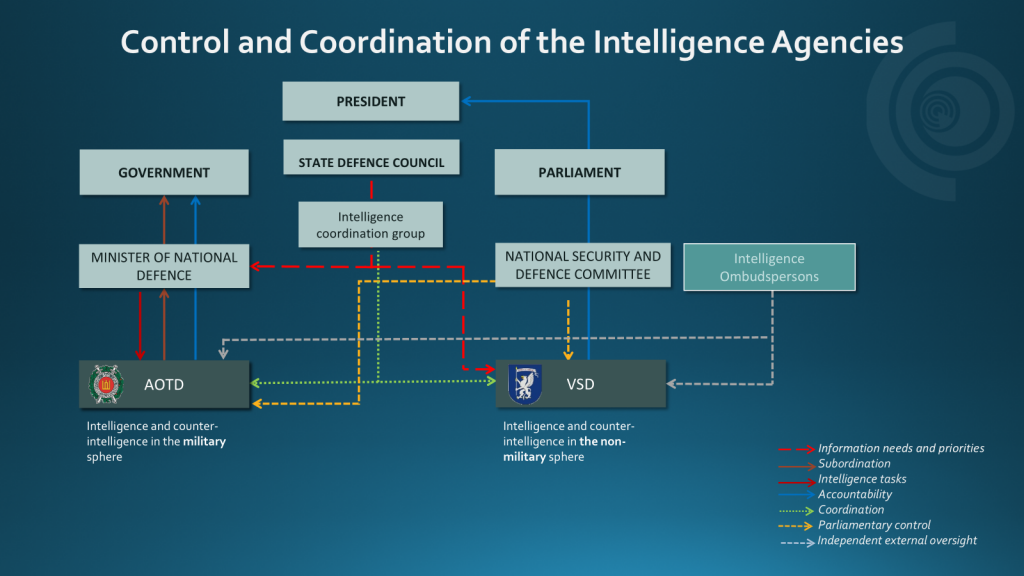Coordination and supervision of intelligence agencies
The Intelligence Ombudsperson is only one of the oversight bodies for intelligence services – it is neither executive, nor legislative, nor judicial, and it is a completely sui generis, separate entity in Lithuania.
Parliamentary control of intelligence agencies is carried out by the Seimas Committee on National Security and Defence in accordance with the procedure laid down in the Seimas Statute. The Committee monitors the compliance with laws and regulations by intelligence agencies and intelligence officers in the conduct of intelligence activities; draws up proposals for the improvement of the legislation relating to the activities of intelligence agencies and the protection of human rights in the context of intelligence and counter-intelligence activities; examines complaints from individuals concerning the actions of intelligence agencies and intelligence officers; and deals with any other matters relating to parliamentary control.
The State Defence Council, which coordinates the activities of intelligence agencies, and the Government of the Republic of Lithuania (hereinafter the “Government”) exercise the executive oversight of intelligence agencies. The Government exercises control over the intelligence agencies in accordance with the intelligence information needs and priorities approved by the State Defence Council, informs the intelligence agencies about the intelligence information needs to ensure national security, and receives information from the intelligence agencies on the risks, dangers and threats to national security.
The courts exercise judicial control of legality by authorising or refusing to authorise actions of the intelligence agencies in accordance with the provisions of Article 13 of the Law on Intelligence. The State Audit Office carries out control of the financial operations of the intelligence agencies.
The independent external expert control of intelligence agencies is carried out by the Intelligence Ombudspersons.
In order to ensure the legality, cost-effectiveness, efficiency, effectiveness and transparency of the activities of the intelligence agencies, the heads of intelligence agencies are obliged by the Law on Intelligence to organise the internal control of the institutions under their supervision.

